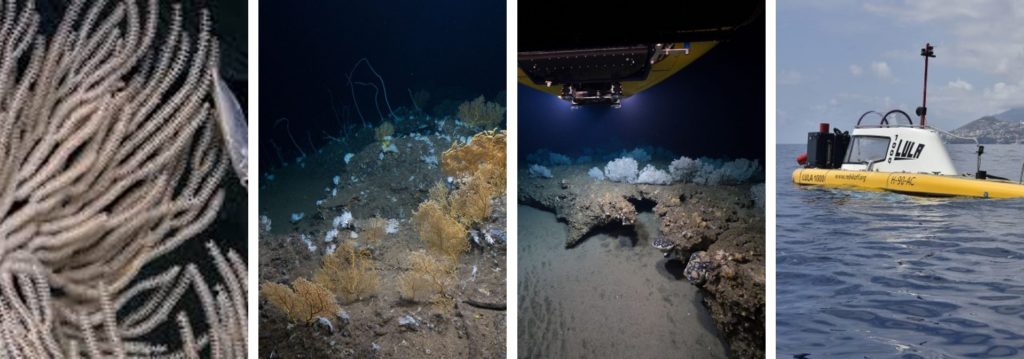The Deep Sea Madeira Project
The Deep Sea Madeira project took place between September 2019 and March 2020. The Regional Secretariat for Environment, Natural Resources and Climate Change of Madeira promotes this project. Its goal is to collect information in order to contribute to the following objectives;
Goals of the project
- Increase knowledge about the quantities, spatial distribution, composition, and provenance of marine litter.
- Assess the impacts of the presence of marine litter on the coastal as well as deep ocean ecosystems.
- Acquire relevant scientific data to support:
- The familiarization with the deep sea inhabitants (fauna and flora).
- The future establishment of Marine Protected Areas and their relative management plans.
- The improvement of the management of human activity and its impacti on marine space (fisheries, aquaculture, tourism, etc.)
Two main goals thus. Firstly, the development of management tools to prevent litter from landing in the ocean. Secondly, the acquisition of scientific data to plan the future use of marine space around Madeira. The ambition is to create further Marine Protected Areas and to mitigate human activity ‘s toll on the Oceans.
Financed Mostly by the European Union
The European Union finances 75% of this Deep Sea Madeira project. The Regional Government is responsible for the remaining 25%.

4000 meters deep
Madeira has been inhabited for 600 years now. Much the island and its rich heritage from the coastline up to the high peaks is known and celebrated. However, extremely little – close to nothing – is known about the many treasures in Madeira’s deep waters which extend to 4000 meters deep.

This Deep Sea expedition data and documentary hopes to lift a corner of the veil. Scientists from Madeira and the world will certainly look at the vast amount of information to shed some light into Madeira’s deep ocean.
The expedition took place in four study areas. That is to say in the Bay of Funchal, in Ribeira Brava, in Machico/Caniçal and on the Ridge between Ponta de São Lourenço and the Desertas Isles.
LULA 1000
The work is the result of 10 dives aboard the LULA 1000 submarine from the Rebikoff-Niggeler Foundation. The lucky scientists onboard the LULA 1000 were: Andreia Henriques, João Clode, Manuel Biscoito , João Delgado and Pål Mortensen.
Above all, a film ‘Madeira Mar Profundo’ is the summary of 10 dives that the submersible Lula from the Rebikoff -Niggler Foundation carried out in the seas of Madeira. Moreover, the team of researchers filmed, photographed and documented the state of the rich natural heritage, species and habitats.
Source: the Rebikoff-Niggeler Foundation